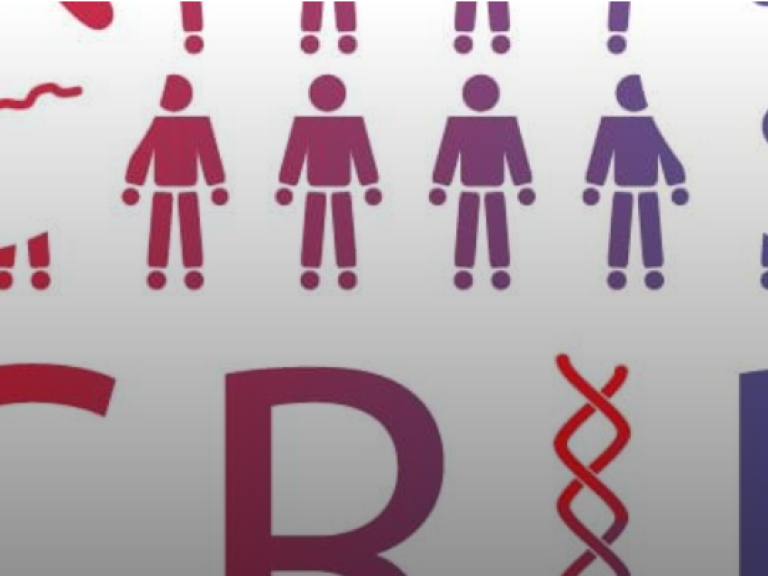
Clinical and Single-Cell Transcriptomics for Pneumonia Codeathon
The codeathon brought together data science experts to compare and develop computational approaches to better understand pneumonia.
The NIAID/Division of Microbiology and Infectious Diseases (DMID) Systems Biology Consortium for Infectious Diseases is a group of interdisciplinary scientists that bridge disparate scientific disciplines including microbiology, immunology, infectious diseases, microbiome, mathematics, physics, bioinformatics, computational biology, machine learning, statistical methods, and mathematical modeling. These teams integrate large-scale experimental biological and clinical data across temporal and spatial scales. Scientists iteratively test and validate hypotheses to gain insight into the overall complexity of the biological, biochemical, and biophysical molecular processes within microbial organisms as well as their interaction with the host. The research findings drive innovation and discovery, with the goal of developing novel therapeutic and diagnostic strategies, and predictive signatures of disease to alleviate infectious disease burden and provide solutions to complex public health challenges and disease outbreaks.
Programs
Currently Funded: Systems Biology for Infectious Diseases
In response to RFA-AI-21-065 Centers conduct research to develop and validate predictive models of infectious disease initiation, progression, and outcomes. These models are derived from the study of the architecture and dynamics of systems-wide host/pathogen molecular interaction networks during infection. The research findings will provide a deeper understanding of the overall complexity of the biological, biochemical, and biophysical molecular processes within microbial organisms, as well as their interaction with the host, and help researchers identify targets for the development of diagnostics, vaccines, and therapeutics.
Icahn School of Medicine at Mount Sinai; SARS-CoV adaptations through a Systems Biology Lens (SYBIL)
- Contact PI: Adolfo Garcia-Sastre
- Project PIs: Adolfo Garcia-Sastre, Sumit Chanda, Michael Schotsaert, and Rafael Medina
- Admin Core PIs: Adolfo Garcia-Sastre and Sumit Chanda
- Data Core PI: Lars Pache
- Technology Core PI: Nevan Krogan
- Modeling Core PI: Rafick Sekaly
Northwestern University at Chicago; Successful Clinical Response in Pneumonia Therapy (SCRIPT) Systems Biology Center
- Contact PI: Richard Wunderink
- Project PIs: Richard Wunderink and Alan Hauser
- Admin Core PI: Richard Wunderink
- Data Core PI: Theresa Walunas
- Technology Core PI: Benjamin Singer
- Modeling Core PIs: Alexander Misharin and Thomas Stoeger
Scripps Research Institute; Consortium for Viral Systems Biology (CViSB)
- Contact PI: Kristian Andersen
- Project PIs: Kristian Andersen, Robert Garry, Ryan McNamara and Donald S Grant
- Admin Core PI: Kristian Andersen
- Data Core PI: Karthik Gangavarapu
- Technology Core PI: Bryan Briney
- Modeling Core PI: Douglas Lauffenburger and Marc Suchard
University of California, Los Angeles; Systems Epigenomics of Persistent Bloodstream Infection
- Contact PI: Michael Yeaman
- Project PIs: Michael Yeaman, Scott Filler, Elaine Reed and Melissa Johnson
- Admin Core PI: Michael Yeaman
- Data Core PI: David Gjertson
- Technology Core PI: Monica Cappelletti
- Modeling Core PI: Aaron Meyer
University of California, San Francisco; Host Pathogen Mapping Initiative (HPMI)
- Contact PI: Nevan Krogan
- Project PIs: Nevan Krogan, Jeffrey Cox, Michael Glickman and Melanie Ott
- Admin Core PIs: Nevan Krogan & Jeffrey Cox
- Data Core PI: Andrej Sali
- Technology Core PIs: Danielle Swaney and Jennifer Doudna
- Modeling Core PI: Trey Ideker
Publications
PubMed search for articles from the current Systems Biology for Infectious Diseases Program.
Previously Funded Systems Biology Centers
For more information, please see the Systems Biology Program History page.
Training Opportunities
The NIAID/DMID Systems Biology Consortium for Infectious Diseases is committed to training the next generation of researchers and informing the community about the approaches and resources (datasets, analysis tools, predictive models) generated by the programs.
Consortium training and outreach activities include workshops, annual meeting postdoctoral networking sessions, and a webinar series.

